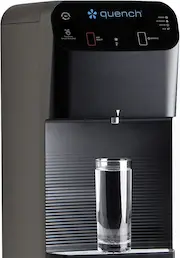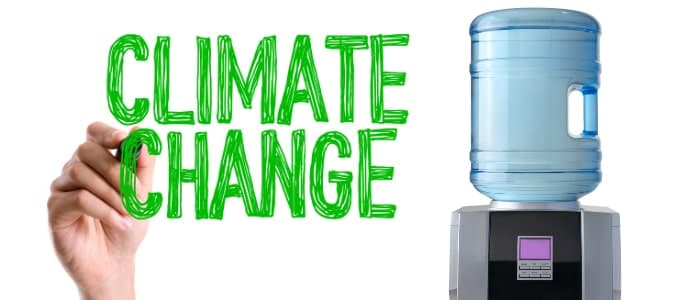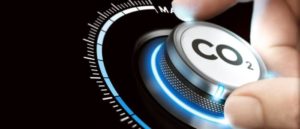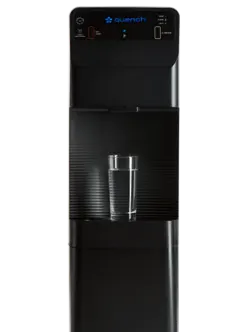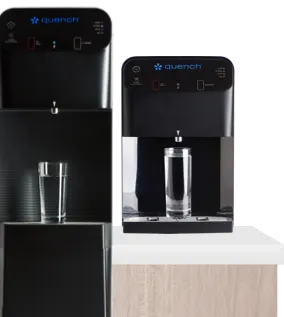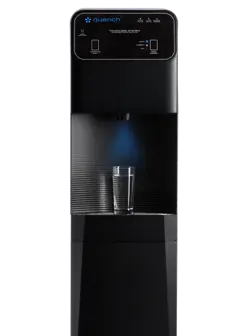The 50th anniversary of Earth Day is Wednesday, April 22. This year’s theme is climate action. When you hear about environmental disasters happening as a result of climate change, the issue may seem too overwhelming for any one person to take on by themselves. However, if a large portion of the population moves to reduce their environmental impact, the effects can be significant.
Businesses have a unique opportunity to make a positive impact on the environment. A commitment to sustainability creates a bigger purpose for your employees, reduces supply chain costs, and even drives innovation within your company. Simply changing how you provide water to your employees can make a big difference. Think about your standard 5-gallon water delivery service, for instance. If your employees are spending their days chatting around a plastic 5-gallon jug water cooler, it might be time for a more sustainable upgrade. Replacing your traditional water cooler with a bottle-free water dispenser will not only reduce your business’s carbon footprint, it will also give your break room (and employees) the upgrade it deserves.
Our research shows that between manufacturing, transportation, refills, and disposal, a single plastic 5-gallon jug is likely to be responsible for the emission of 1.90 metric tons of CO2 throughout its existence, which is equivalent to the CO2 emissions from burning about 2,000 pounds of coal. To help better understand where the emissions come from and exactly how much, the Quench Water Experts break down the pollution by-product from each step of the 5-gallon water delivery process.
1. Extraction
When thinking about the origins of plastic, we tend to overlook one of the most carbon-intensive stages. The oil, gas, and coal needed to make plastics is pulled from the earth through fracking. Once fossil fuels are extracted, they must be transported to factories via pipelines, trains, and trucks. The Center for International Environmental Law (CIEL) estimated that 12.5 to 13.5 million metric tons of carbon dioxide are emitted every year while extracting and transporting natural gas to create raw materials for plastics in the United States.[1] That number accounts for the land disturbance it requires to execute the extraction as well.
2. Manufacturing
Refining the plastic required to create a 5-gallon jug requires a large amount of greenhouse gas emission. That’s another reason to reduce water bottles and switch to a bottle-free water cooler. Many plastic jugs used to hold water are made from polyethylene terephthalate (PET), since the material is both strong and light. Making PET is an incredibly CO2 intensive task. In fact, emissions from manufacturing ethylene, the building block for polyethylene plastics, is about as much as 45 million passenger vehicles emit during a single year, according to the CIEL.
3. Transportation
Think of all the gas we could save if we could teleport water jugs from one location to another. Unfortunately, this is real life not Star Trek, and 5-gallon water delivery services must constantly have vehicles on the road in order to keep up with demand. Each one of those delivery vehicles emits about one pound of CO2 per mile. So, when you add up all the miles of driving materials to and from production plants and driving plastic jugs to and from businesses, you get a lot of miles, which equates to a lot of pollution.
Our research found that 5-gallon water delivery services for a 50-person company will emit as much CO2 into the environment as driving about 47,476 miles in a passenger vehicle per year…that’s a lot of miles to keep your employees from going thirsty. In comparison, a 50-person company that uses bottle-free water coolers will emit the equivalent to 730 miles in a passenger vehicle per year. That’s over 1,200 times less!
4. Disposal
Installing a bottle-free cooler in your office can help reduce water bottles and avoid having to dispose of them in the long run. Even when a plastic 5-gallon jug has fulfilled its life’s purpose, it’s time emitting carbon dioxide is far from over. Those old bottles have to go somewhere – right? Some are sent to the incinerator. The CIEL estimates that U.S. emissions from plastics incineration in 2015 were equivalent to 5.9 million metric tons of carbon dioxide. Others are sent to landfills, or worse, end up in our waterways. And once they enter the environment, they don’t stop polluting. According to Scripps Institution of Oceanography, plastics that are sent to landfills or end up in the ocean release greenhouse gases as they break down, which can take over 450 years.[2]
Go Bottle-Free with Quench
In one year, the manufacturing of plastic jugs burns about 6 million gallons of fuel and releases approximately 2.5 million tons of carbon dioxide into the atmosphere.[3] Quench research shows that companies that go bottle-free use 99.92% less carbon than those companies that use 5- gallon water delivery services. That’s significant for those businesses interested in reducing their carbon footprint and establishing themselves as environmentally responsible.
As we reach a record amount of pollution on our planet, we each need to do our part to help save the environment that we all know and love. At Quench, enhancing the sustainability efforts of our customers is a core value of our service. We help our customers eliminate the use of bottled drinking water delivery services and the incumbent fossil fuel depletion, carbon emissions, and additional plastic waste by filtering a building’s existing water supply at the point-of-use (POU) via a bottle-free water cooler.
Stop using 5-gallon jugs at your workplace and switch to a Quench filtered water cooler for clean, great-tasting drinking water that will positively impact the planet.
Want to learn more about Quench and our filtered water dispensers? Click here! Can’t wait to get started? Click on the green “Get a Quote” button and we will have one of our Quench Water Experts contact you. Or give us a call at: (844) 715-7317!
[1] https://www.yaleclimateconnections.org/2019/08/how-plastics-contribute-to-climate-change/
[2] https://www.yaleclimateconnections.org/2019/08/how-plastics-contribute-to-climate-change/
[3] https://www.printwand.com/blog/plastic-water-bottle-pollution-effects-facts
